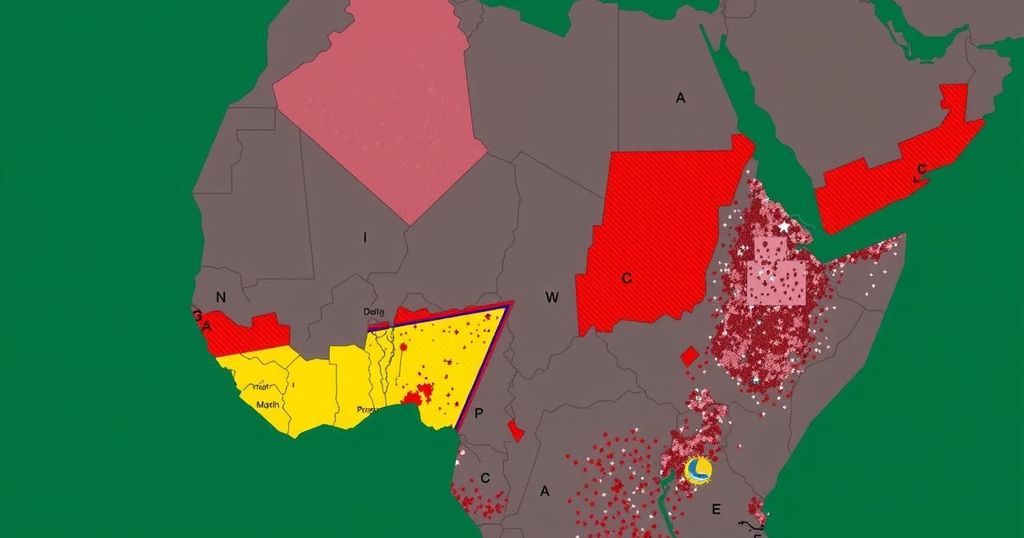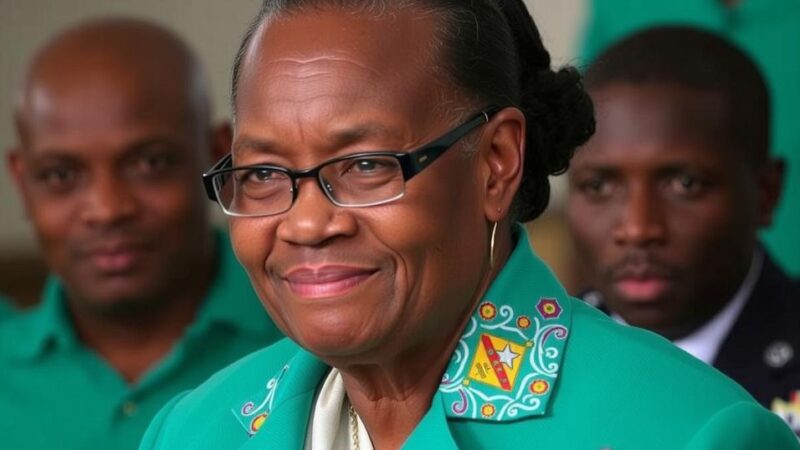Post-election violence in Mozambique following the disputed October 9 elections has raised significant concerns for Southern Africa. With the Frelimo party extending its 49-year rule, protests have led to at least 30 deaths, prompting border closures by neighboring South Africa. The situation threatens regional stability, economic relations, and highlights ongoing issues with governance in Southern Africa, reflecting a contrasting reality amidst some nations’ democratic advancements.
The political landscape in Mozambique has been significantly unsettled following the controversial outcomes of the October 9 elections, which resulted in the ruling Frelimo party extending its 49-year grip on power. Widespread protests erupted, led by opposition groups contesting the legitimacy of the election results, and resulting violence has claimed at least 30 lives. The situation has garnered attention within the Southern African Development Community (SADC) as regional stability hangs in the balance amidst ongoing protests and unrest. Mozambique’s recent unrest draws attention not only due to its domestic implications but also for the potential ripple effects on Southern Africa’s broader political and economic climate. Several nations in the region, such as South Africa and Botswana, have recently held elections deemed credible and democratic, contrasting sharply with Mozambique’s turbulent post-election experience. The electoral observer team from the European Union reported significant irregularities during Mozambique’s election process, exacerbating concerns about governance and legitimacy within the region. The economic interdependencies in Southern Africa further complicate the challenges faced by Mozambique, as instability in Mozambique directly threatens regional trade. South Africa, which is intricately linked to Mozambique through trade routes and transport avenues, has already seen economic repercussions from the closure of border crossings related to protest activities. The South African economy stands to lose millions daily amidst these disruptions, particularly concerning exports that traverse through Mozambican ports. Additionally, Mozambique’s historical context, marred by a prolonged civil war and ongoing conflicts with insurgent groups, raises further concerns regarding the country’s political stability. Thousands remain displaced due to violence, and the potential for escalating crisis may lead to heightened migration challenges for neighboring nations. For countries such as Zimbabwe, facing their own electoral disputes, the instability in Mozambique becomes a significant risk factor that could trigger larger regional challenges.
Understanding the current situation in Mozambique requires a grasp of the country’s political history and recent electoral processes. The Frelimo party, which has governed Mozambique since its independence, has faced allegations of election inaccuracies, particularly in the recent October 9 elections. Historical context is crucial as the nation has contended with significant civil unrest and inter-party violence, leading to deep-seated political rivalries that complicate its governance. In the broader Southern African context, the region’s efforts toward stable democracies often stand in stark contrast to the realities in Mozambique, which makes regional stability and cooperative engagement vital in addressing ongoing tensions.
In summary, the ongoing post-election violence in Mozambique poses a significant concern not only for its citizens but also for the stability of the Southern African region. With at least 30 fatalities reported, the unrest highlights serious questions regarding electoral integrity and governance. The implications for regional trade and economic activity are substantial, as neighboring countries grapple with potential spillover effects of Mozambique’s political instability. Moreover, historical contexts of civil conflict and displacement amplify the urgency for comprehensive engagement and resolution strategies to foster stability in Mozambique and the surrounding region.
Original Source: apnews.com







